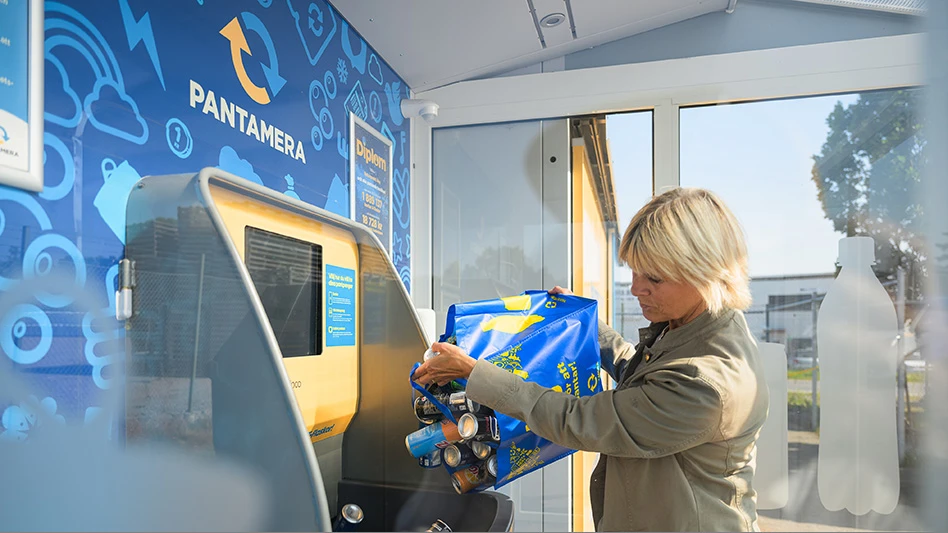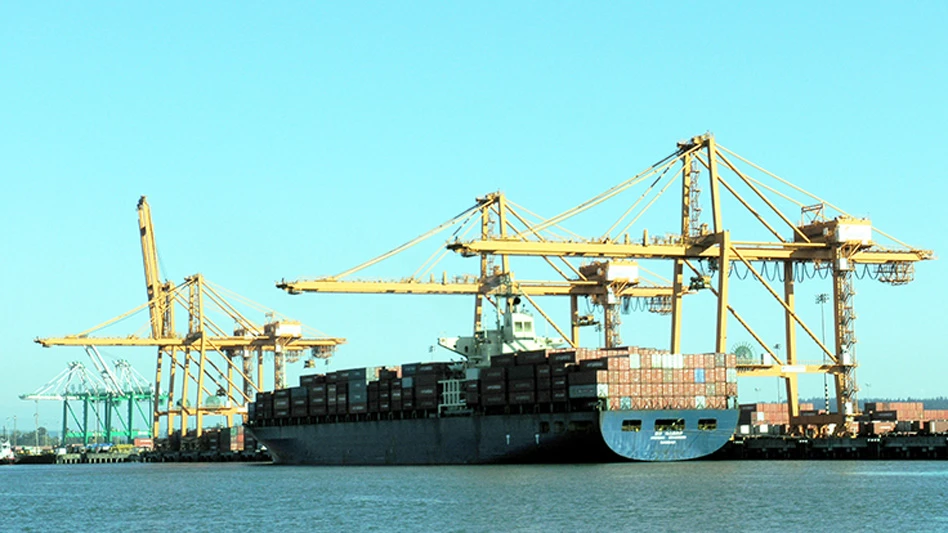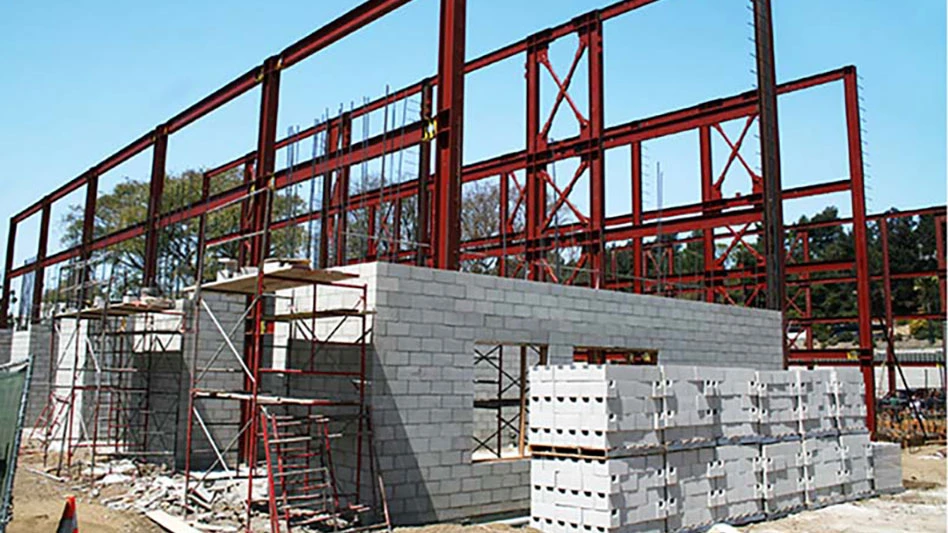
pepebaeza | stock.adobe.com
Steel Dynamics Inc. (SDI) says its board of directors has authorized construction and operation of a 650,000-metric-ton recycled aluminum flat-roll mill and two supporting satellite recycled aluminum slab centers. The company will invest an estimated $2.2 billion in the three facilities, with commercial production planned to begin in the first quarter of 2025. The project will be funded with available cash and cash flow from operations, SDI notes in a news release about the investment.
Founded in 1993, Fort Wayne, Indiana-based SDI is among the largest and most diversified U.S. steel producers and metals recyclers. SDI produces steel with fewer carbon emissions using electric arc furnace technology (EAF) with recycled ferrous scrap as the primary input. The company says it plans to bring the steel minimill culture and related operating efficiency to the flat-rolled aluminum industry.
This is not SDI’s first venture into nonferrous metal production. In 2012, the company partnered with Spanish company La Farga Group to establish SDI La Farga LLC, which produces copper wire rod from recycled copper at its plant in New Haven, Indiana. With the company's purchase of OmniSource Corp., its scrap recycling division, in 2007, it also acquired Superior Aluminum Alloys, New Haven, which OmniSource established in 1997.
SDI says its steel customers are significant consumers and processors of aluminum flat-rolled products and seek the company’s high-quality, sustainable, customer-centric approach within the flat-rolled aluminum market.
“We are incredibly excited to announce this meaningful growth opportunity, which is aligned with our existing business and operational expertise,” says Mark D. Millett, chairman, president and chief executive officer at SDI. “We have intentionally grown with our customers’ needs, providing efficient sustainable supply chain solutions for the highest quality products. Thus far, this has primarily been achieved within the carbon steel industry—however, a significant number of our carbon flat-rolled steel customers are also consumers and processors of aluminum flat-rolled products. Today, we are announcing our plans to broaden our ability to serve our existing and new customers by adding high-quality, low-carbon flat-rolled aluminum to our product portfolio. We are also excited to further diversify our end markets with plans to supply the sustainable beverage can industry.”
Millett adds, “We believe our unique performance-based operating culture, coupled with our considerable experience in successfully constructing and operating cost-effective, highly profitable carbon flat-rolled steel mills, positions us exceptionally well to execute this strategic opportunity in an adjacent metal space and to deliver strong long-term value creation.”
Its planned aluminum flat-rolled mill will use what SDI describes as “a significant amount” of aluminum scrap, making it a complementary extension of SDI’s metals recycling platform, which primarily operates under the name OmniSource and ranked as the largest nonferrous metal recycler with auto shredding operations in North America on Recycling Today’s 2021 list. SDI says its metals recycling platform is expected to supply 100 percent of the aluminum scrap needed for rolling mill and aluminum slab operations.
The company estimates the project will generate between $650 million and $700 million of annual earnings before interest, taxes, depreciation and amortization (EBITDA) on a through-cycle basis.
SDI says the North American flat-rolled aluminum industry has a supply deficit estimated at more than 2 million metric tons in large part because of growing demand from the automotive and beverage can industries. This deficit is being addressed through imports of higher-cost aluminum flat-rolled products, which exceeded 25 percent of North American consumption in 2021, the company adds.
SDI says it plans to locate the $1.9 billion aluminum flat-rolled mill in the southeastern U.S. and that the equipment contract has been awarded to SMS Group. The mill’s product offering will be supported by various value-added finishing lines, including CASH (continuous annealing solutions heat treating) lines, continuous coating and various slitting and packaging operations. The rolling mill is expected to begin operations in the first quarter 2025.
The company says it plans to use a significant amount of pre- and postconsumer aluminum scrap in its production process. SDI, which is partnering with Unity Aluminum Inc. in a joint venture, will own more than 94 percent of the rolling mill facility. Ashland, Kentucky-based Unity’s employees provide significant aluminum industry operating expertise to the project, SDI says, complementing its own proven extensive construction and operating talent.
SDI Investor Relations Manager Tricia Meyers tells Recycling Today, "Steel Dynamics chose to structure this rolling mill as a joint venture, with Unity Aluminum having a 5.6 percent equity stake as their employees provide significant aluminum industry operating expertise to the project, complementing Steel Dynamics’ own proven extensive construction and operating talent."
Barry Schneider, SDI’s senior vice president of the Flat Roll Group, sits on Unity’s board.
Unity Aluminum, formerly Braidy Industries, announced plans in 2017 to construct a 370,000-ton-per-year aluminum mill near Ashland.
Meyers says "this is not 'that' plant," referencing the planned investment on the part of Unity. "The aluminum flat rolled mill that we announced today is being designed, built and operated by Steel Dynamics."
She continues, "We have not yet selected a site. Steel Dynamics expects to benefit from compelling incentives from the state and local governments keen to bring the project to their communities and based on customer locations and access to aluminum scrap and other raw materials, we plan to locate the rolling mill in the southeastern United States."
At full capacity, SDI’s aluminum rolling mill will require approximately 900,000 metric tons of annual aluminum slab supply, according to the company. The rolling mill likely will supply approximately 50 percent of its recycled aluminum slab requirements on-site, with the remaining amount to be provided by the construction and operation of two additional satellite recycled aluminum slab centers: one to be located in the southwestern U.S. and the other in northcentral Mexico. The two facilities are expected to cost approximately $350 million in aggregate, with the Mexico facility expected to begin operations in 2024 and the U.S. facility by the end of 2025, SDI says. The company will own 100 percent of the satellite facilities.
Sponsored Content
Labor that Works
With 25 years of experience, Leadpoint delivers cost-effective workforce solutions tailored to your needs. We handle the recruiting, hiring, training, and onboarding to deliver stable, productive, and safety-focused teams. Our commitment to safety and quality ensures peace of mind with a reliable workforce that helps you achieve your goals.
The aluminum scrap for the Mexican slab mill likely will be supplied by companies SDI recently acquired in Mexico to help secure prime scrap for its Sinton, Texas, EAF steel mill. Earlier this year, SDI bought Roca Acero S.A. de C.V., which operates four scrap processing facilities, including at least one with an auto shredder. SDI calls the facilities “strategically positioned near high-volume industrial scrap sources located throughout central and northern Mexico.”
In 2020, the company purchased Zimmer S.A. de C.V. of Monterrey, Mexico, which operates a ferrous and nonferrous scrap metals recycling business. The company’s primary operations include six scrap processing facilities strategically positioned near high-volume industrial scrap sources throughout central and northern Mexico. The company also operates several third-party scrap processing locations.
Meyers says OmniSource will continue to serve its customers by supplying aluminum scrap and has a strategic plan to increase its aluminum volumes. She says that plan includes levering the scrap supply in the Southwest U.S. and northcentral Mexico, adding that Mexico has excess aluminum scrap supply. It also will involve "further expanding our industrial scrap management program, targeting large aluminum industrial companies that would benefit from having a scrap management program, and upgrading secondary aluminum scrap that is currently available through new sorting technologies, some of this aluminum scrap is currently being exported to other countries to be sorted," Meyers says.
SDI says the investment in aluminum production diversifies its end-market exposure by serving the growing North American beverage can industry with its counter-cyclical characteristics. Consistent with its vision for its Sinton mill, SDI says it plans to invite customers to locate facilities on-site with the rolling mill to further enhance customer cost efficiencies, providing a “closed loop” aluminum coil-to-scrap sourcing opportunity.
*This article was updated July 20, 2022, to include comments from SDI's Tricia Meyers and Aug. 4 to add the mention of Superior Aluminum Alloys.
Get curated news on YOUR industry.
Enter your email to receive our newsletters.
Latest from Recycling Today
- CP Group announces new senior vice president
- APR publishes Design Guide in French
- AmSty recorded first sales of PolyRenew Styrene in 2024
- PRE says EU’s plastic recycling industry at a breaking point
- Call2Recycle Canada, Staples Professional expand partnership
- Circular Services breaks ground on north Texas MRF
- Tariff uncertainty results in choppy nonferrous scrap flows
- CATL, Ellen MacArthur Foundation establish battery partnership








